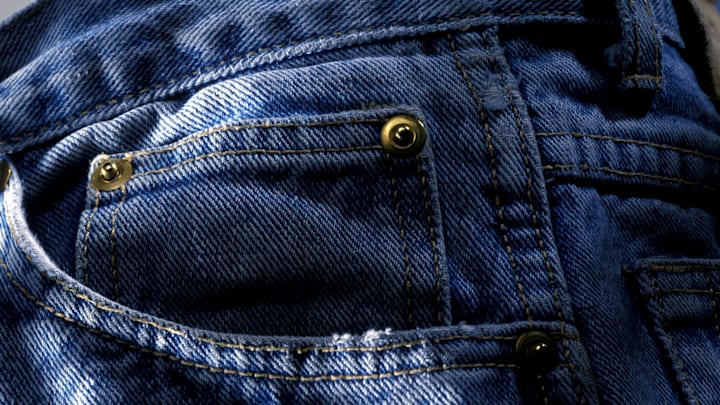Are you wearing pants? We hope so, especially if you’re browsing the internet in a public place. If you’re wearing jeans, you’ll probably spot some tiny metal rivets surrounding the front pockets. Like a lot of details in life, we’ve become accustomed to seeing them. So why are they there?
According to an official historical account by Levi Strauss & Co., possibly the preeminent manufacturer of jeans on the planet, the rivets actually helped birth the modern blue jeans. In 1873, a tailor named Jacob Davis greeted a customer whose husband had work pants that tore easily. She asked Davis to conceive of pants that could stand up to physical labor and, one imagines, prevent her spouse from having to go to work and moon people.
Denim was already a durable material, but it needed additional support. Davis thought the best approach was to reinforce the pants at places of strain, like the hip pockets and the base of the button fly. He used metal rivets to secure those problem areas. The idea was met with enthusiasm by his customer, and soon word spread of Davis’s powerful pants.
Sensing a business opportunity, Davis pitched the concept to Levi Strauss, a Bavarian immigrant who had entered the dry goods business and had been supplying Davis with denim. Perhaps, Davis said, the two of them could hold a joint patent on the riveted pants. Strauss agreed, and the patent was issued in May 1873. According to Levi Strauss—the company, though the man would probably agree—the issuing of the patent was effectively the birth date of the modern blue jean.
The riveted jeans went into mass production in 1890. Their basic design went largely unchanged, though the rivets securing the tiny pocket meant for a pocket watch did undergo one alteration during World War II: Levi Strauss removed the studs to conserve metal.
